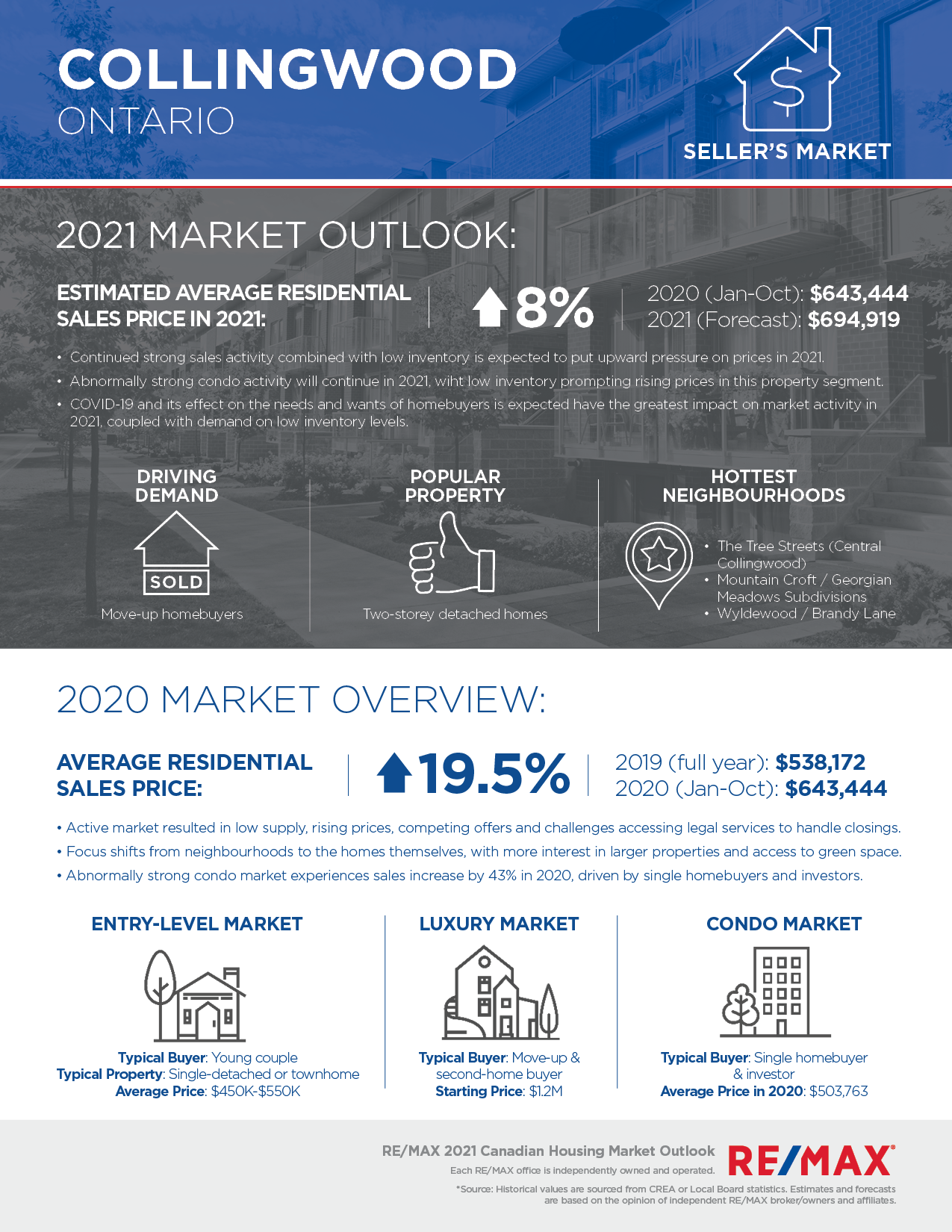Collingwood housing market to favour sellers in 2021, prices expected to rise 8%
The Collingwood housing market was a strong seller’s market in 2020 – conditions that are expected to continue into 2021 as low inventory and rising prices continue to challenge homebuyers in the area. The housing supply shortage is a factor that’s been playing out across many Ontario housing markets, resulting in widespread rising prices. Indeed, Collingwood saw the average price of single-detached homes rise to $773,813 in 2020 (Jan. 1 – Oct. 31) compared to 2019’s average price of $607,831 (Jan. 1 – Dec. 31). Meanwhile, average condo prices also increased to $506,763 in 2020, up from $459,276 in 2019. The unusually hot 2020 condo market saw sales surpass 2019 levels by 43% by the end of October. RE/MAX expects this seller’s market to persist in 2021, with an 8% increase in average price across all property types, to $694,919, and sales expected to rise by 10%.Collingwood currently has 2.6 months of inventory, with similar levels expected through most of 2021. Days on market are also expected to hold steady, with multiple offers on most listings expected to continue, as inventory levels lag. These conditions should carry through into 2021 and for the foreseeable future.
We’ve seen a lot of anecdotal evidence since the summer that households are considering significant lifestyle changes by relocating to less-dense cities and neighbourhoods,” says Christopher Alexander, Executive Vice President and Regional Director, RE/MAX of Ontario-Atlantic Canada. “This has sparked unprecedented sales this year in suburban and rural parts of Canada and we expect this trend to continue in 2021.”Despite the disruption of the virus, consumers are feeling optimistic, according to a Leger survey conducted on behalf of RE/MAX Canada, with 52 per cent of Canadians eyeing real estate as one of the best investment options in 2021, and expressing confidence that the Canadian housing market will remain steady next year.

